-
Improving landmine detection – and air travel safety
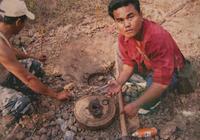
It is estimated that there are about 110 million active landmines lurking underground in sixty-four countries across the globe; each year as many as 25,000 people, most of them civilians, are maimed or killed by landmines; the mines not only kill and maim, they can paralyze communities by limiting the use of land for farming and roads for trade; researchers offer a better way to detect landmines – a method which can also be used in airports to help thwart possible terrorist threats
-
-
Improving oil recovery, aiding environmental cleanup
Researchers have taken a new look at an old, but seldom-used technique developed by the petroleum industry to recover oil, and learned more about why it works, how it could be improved, and how it might be able to make a comeback not only in oil recovery but also environmental cleanup
-
-
Federal mapping tool used in Gulf spill expanded to Arctic
A new federal interactive online mapping tool used by emergency responders during the Deepwater Horizon oil spill has been expanded to include the Arctic, and will help address numerous challenges in the Arctic posed by increasing ship traffic and proposed energy development
-
-
Under industry pressure, DHS drops chemical plant employee screening proposal
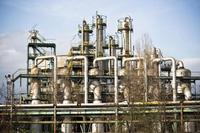
Security experts agree that short of a nuclear attack on a U.S. city, the most casualty-heavy disaster would occur as a result of an accident in, or a terrorist attack on, a chemical plant which would release a cloud of toxic fumes; there are about 15,000 plants in the United States which produce, process, use, or store volatile and toxic chemicals; more than 300 of the these plants are so close to large population centers, that a chemical release in any one of them would cause more than 50,000 casualties; DHS wanted to have employees in these plants screened for potential ties terrorism, but the chemical industry objected, saying this would be too costly; last Thursday DHS pulled the proposal
-
-
New, affordable instant warnings of bridge collapse
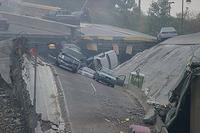
The Federal Bureau of Transportation lists nearly 70,000 U.S. bridges as “structurally deficient,” requiring extra surveillance; in addition, more than 77,000 others are categorized as “obsolete” — exceeding their intended lifespan and carrying loads greater than they were designed to handle; researchers developed a new technology for monitoring these 150,000 aging U.S. highway bridges
-
-
New study probes insider threat in financial services sector
New study found that those committing insider fraud are taking a “low and slow” approach, escaping detection for long periods of time and costing targeted organizations an average of $382,000 or more, depending on how long the crime goes undetected; managers and accountants cause the most damage from insider fraud and evade detection longer
-
-
A second look at off-shore use of vertical-axis wind turbines
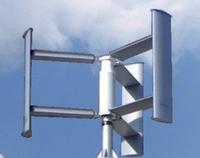
Wind energy researchers are re-evaluating vertical axis wind turbines (VAWTs) to help solve some of the problems of generating energy from offshore breezes; though VAWTs have been around since the earliest days of wind energy research, VAWT architecture could transform offshore wind technology
-
-
Radiation detection equipment installed in four Mexican ports
The Megaports Initiative is a U.S. Department of Energy program intended to enhance the ability of ports around the world to detect and interdict illicit shipments of special nuclear and other radioactive materials; Under the initiative, radiation detection gear and protocols were implemented in the Mexican ports of Manzanillo, Altamira, Lazaro Cardenas, and Veracruz, through which 92 percent of Mexico’s containerized cargo pass
-
-
Raytheon's Space Fence technology tracks space debris

Space debris threatens systems the U.S. military and economy depend on every day, including satellites that power navigation, weather and critical infrastructures; the Space Fence program is capable of detecting more and much smaller objects in low earth orbit
-
-
Measuring DHS effectiveness monitoring chemical plant safety standards
The events of 9/11 triggered a national re-examination of the security of facilities that use or store hazardous chemicals in quantities which, in the event of a terrorist attack, could put large numbers of Americans at risk of serious injury or death; the GAO issued a report on how DHS ensures compliance with chemical facilities security standards
-
-
Surface coal mining destroying West Virginia streams, rivers
More than 22 percent of streams and rivers in southern West Virginia have been degraded to the point they may now qualify as impaired under state criteria; the substantial losses in aquatic insect biodiversity and increases in salinity is linked to sulfates and other pollutants in runoff from mines often located miles upstream
-
-
Conflict of interests charges surround two pro-fracking studies
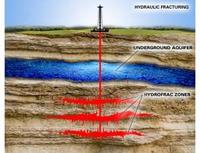
Two recent studies — by research institutes at the University of Buffalo and the University of Texas — on the relationship between fracking and the contamination of groundwater, offered what was claimed to be scientific, peer-reviewed research which concluded that fracking does not contribute to such contamination; an examination of the two reports reveals that they were not properly reviewed according to accepted academic standards, and that their authors, and the research institutes which sponsored them, are heavily involved with companies which conduct fracking operations; the author of the University of Texas report sits on the board of a leading fracking company, where his compensation is more than twice as large as his UT salary; he did not disclose this fact in the study — or inform UT of this connection; UT is investigating
-
-
The five biggest stories at Black Hat
The annual Black Hat Briefings conference, held last week in Las Vegas, is the world’s biggest, and arguably the most important, gathering of security researchers; here are the five biggest stories to take away from last week’s Black Hat meeting in Las Vegas
-
-
Rich pre-seminar programs and events
The 58th ASIS International Annual Seminar and Exhibits will take place in Philadelphia on 10-13 September. ASIS offers rich pre-seminar programs and events, and on the Saturday and Sunday, 8-9 September, before the big event opens, there is a series of in-depth panels and discussions attendees should note
-
-
Science group: storing spent nuclear fuel in dry casks significantly safer then wet pools storage
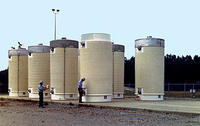
An NRC report on the lessons of the Fukushima disaster says that storing spent nuclear fuel in wet pools is “adequate” to protect the public; a science groups says there is a significantly safer way to store the 55,000 tons of radioactive waste currently stored by the 104 nuclear power plants operating in the United States: transferring the spent fuel to dry casks
-
- All
- Regional
- Water
- Biometrics
- Borders/Immig
- Business
- Cybersecurity
- Detection
- Disasters
- Government
- Infrastructure
- International
- Public health
- Public Safety
- Communication interoperabillity
- Emergency services
- Emergency medical services
- Fire
- First response
- IEDs
- Law Enforcement
- Law Enforcement Technology
- Military technology
- Nonlethal weapons
- Nuclear weapons
- Personal protection equipment
- Police
- Notification /alert systems
- Situational awareness
- Weapons systems
- Sci-Tech
- Sector Reports
- Surveillance
- Transportation
Advertising & Marketing: advertise@newswirepubs.com
Editorial: editor@newswirepubs.com
General: info@newswirepubs.com
2010-2011 © News Wire Publications, LLC News Wire Publications, LLC
220 Old Country Road | Suite 200 | Mineola | New York | 11501
Permissions and Policies
Editorial: editor@newswirepubs.com
General: info@newswirepubs.com
2010-2011 © News Wire Publications, LLC News Wire Publications, LLC
220 Old Country Road | Suite 200 | Mineola | New York | 11501
Permissions and Policies
